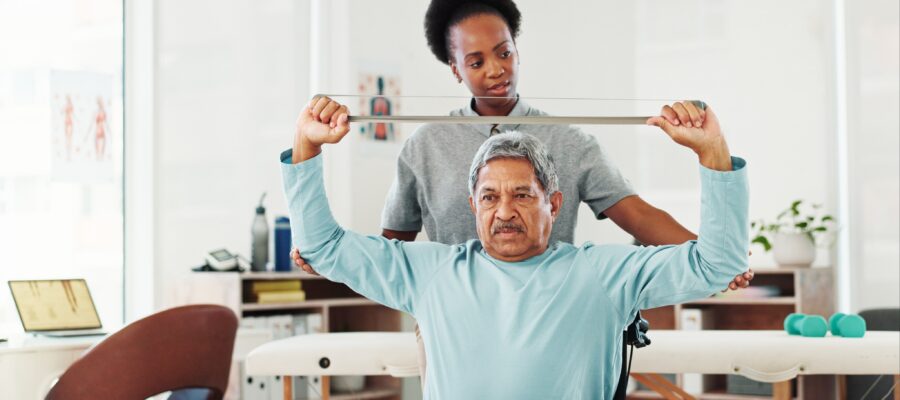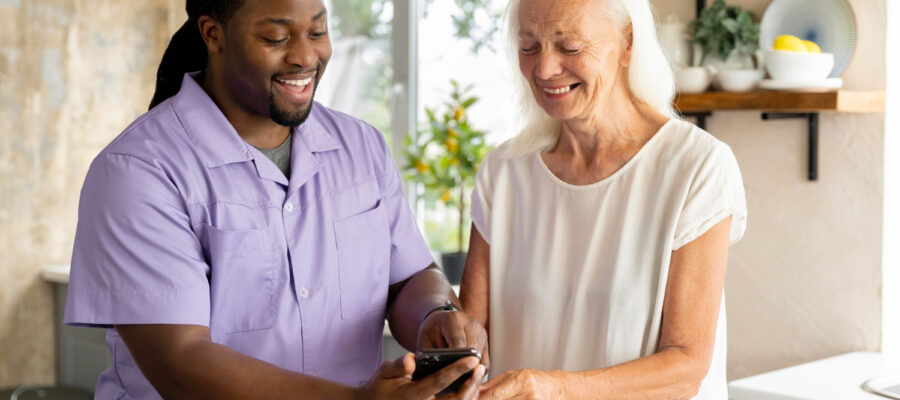Summer is a time to have barbecues, attend concerts, go on beach vacations, and just enjoy the outdoors.
However, hot weather and bright sunlight can pose health risks — especially for seniors. Our bodies get less effective at resisting the negative effects of warm temps and the sun.
Fortunately, taking the proper precautions allows seniors to enjoy the Philadelphia summer without worrying about negative health consequences.
Here are some summer safety tips so your loved one can make the most out of the warm months.
1. Stay Hydrated
As we age, our ability to retain water in our bodies declines. Additionally, we become less aware of our sense of thirst. These can lead to a greater risk of dehydration in seniors during the hot summer months.
Seniors should aim to drink about 8 glasses of water every day. Having a water bottle with
Also, seniors should try to avoid caffeinated and alcoholic drinks when possible, especially on hot days. Both of these are diuretics, meaning they make our body lose water faster by causing more frequent bathroom trips.
2. Keep Cool
High summer temperatures pose several threats to seniors, such as heat exhaustion, heatstroke, and dehydration (per tip #1).
Seniors should make sure their home has a good air conditioning system to beat the heat. If they don’t, they should try to spend time with friends and relatives that do. Public places and senior centers are also good places to go while the heat is at its peak.
3. Protect Against Sunburn
Another threat the sun poses, of course, is UV rays. These can sunburn seniors and increase the risk of skin cancer.
Seniors can protect themselves from harmful UV rays by applying a sunscreen of SPF 30 or higher 15-30 minutes before sun exposure. Doing so 15-30 minutes beforehand allows the sunscreen to work its way into the skin for maximum protection.
Make sure to reapply sunscreen every two hours. Seniors participating in water activities such as swimming should reapply every hour if using water-resistant sunscreen. Of course, reapply again when you get out of the water for good.
Additionally, try to cover up as much as possible without getting too hot. Wear loose-fitting clothes made of natural fabrics, as they tend to be more breathable than synthetics.
Additionally, a hat is a must. A baseball cap can protect the fact, but a wide-brimmed hat is ideal because it keeps your entire head, neck, and some of the upper body safe.
4. Protect Your Eyes
The sun’s rays can harm your eyes when it’s particularly bright outside. Seniors can protect their eyes from vision-damaging rays by wearing adequate sunglasses and a hat.
This is especially important when driving, too. Bright sun and glare can make it hard to see the road in front of you, increasing the chance of an accident.
5. Keep an Eye on Air Quality
Heat and sunlight can worsen air quality in many ways. Certain allergens can become worse, such as pollen on dry days or mold on more humid days.
Additionally, heat and sunlight react with emissions from vehicles and industrial plants to form smog.
The elderly are considered a sensitive group by the EPA, meaning air quality issues can put them at risk of respiratory issues. Seniors should monitor outdoor air quality and stay inside once it approaches 100 on the EPA’s AQI index.
Indoor air quality is important, too, if seniors spend more time inside to avoid the sun. An air quality monitoring device can help make sure interior air quality remains at healthy levels.
To learn more about our home care, in-home therapy, and other services in Bucks County, PA, contact us today.



